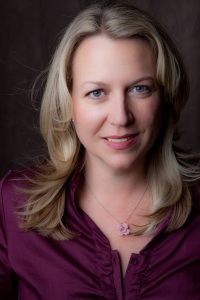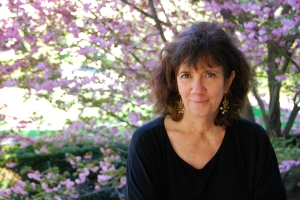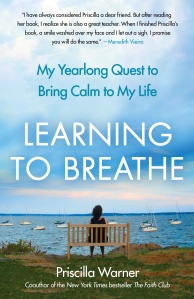 My close friend’s nephew took his own life last month. A few days later a person by the name of Andy Behrman tweeted me that he has a ‘rebuilding’ story. I read some of his articles and got the goose-bumps. Here was a person who had ‘come’ to me in the immediate aftermath of the horrible news of the suicide of this twenty year old student who had a heart of gold and a mind filled with demons.
My close friend’s nephew took his own life last month. A few days later a person by the name of Andy Behrman tweeted me that he has a ‘rebuilding’ story. I read some of his articles and got the goose-bumps. Here was a person who had ‘come’ to me in the immediate aftermath of the horrible news of the suicide of this twenty year old student who had a heart of gold and a mind filled with demons.
Andy Behrman – mental illness; nephew – mental illness.
Andy Behrman – bipolar disorder; nephew – various diagnoses, bipolar having been one of the more recent ones.
The message of synchronicity was loud and clear –get this story out there. It’s another chance for more education and awareness of a silent killer. So in memory of my friend’s nephew, I post this interview in the hope that it may provide some help and hope to the silent sufferers(those with the condition and those affected by it).
Andy Behrman is a writer and mental health advocate. Through his speaking and writing he promotes awareness around the stigma of mental illness, suicide prevention and overall good mental health practices. His memoir, “Electroboy: A Memoir of Mania” is electrifying.
- Please shed some light on the condition of bipolar and what it feels like.
My initial response to this question is that for me, bipolar disorder made me feel like “King of the Hill”, but I was always scared I would lose this feeling. It is a roller coaster ride of euphoric highs and desperate lows. I exhibited much more mania than depression. I felt invincible during my manias and I was extremely productive, outgoing and the life of the party. But at the same time I felt like I was walking a tight-rope without a net underneath me. I was involved in drugs and alcohol, was overspending, racking up huge credit card debt, and was sexually promiscuous. And I wasn’t aware of any of the consequences of my mania, which is why I became involved in an art counterfeiting scheme which landed me in prison.
Although during my manias I felt very much in control, in retrospect I know that I was very much out of control. I was flying from New York to Paris to Tokyo and constantly on the move. I wasn’t sleeping, I couldn’t sit still and I was delusional. There were times when I really thought I could take over the world.
My depressions, which came very infrequently, were not the depressions typically associated with “the blues.” Mine were violent and rageful periods which lasted very briefly. For me, bipolar disorder relied quite a bit on my “racing thoughts” and acting on them. There were days I would wake up, have no idea what my plan was for the day and simply act on one of these thoughts –i.e. fly to Paris, buy a new wardrobe, contemplate a run for Congress, think about new business ventures.
This is a serious illness which is finally in the limelight. When I was diagnosed more than twenty years ago nobody had heard too much about it. I had never heard the term ‘bipolar’; it was referred to as ‘manic depression’. People were not yet out of the closet with this disorder and they were definitely not speaking about it in public. In fact when “Electroboy” was published, it was one of the first accounts of this illness and definitely the first written by a male. People regarded me and my illness as my being ‘wild and crazy’ when in fact I was out of control and scared to death for my life.
Bipolar disorder destroys lives every day and people with this condition take their lives at a high rate.
- How can this be managed to enable someone to live a functional and good life?
Bipolar disorder can be reigned in and managed in several ways, but it must always start with the proper diagnosis. It is extremely tough to diagnose and I was misdiagnosed eight times by eight different doctors. One reason for this is that I ‘presented’ myself to these doctors when I was depressed (usually agitated or angry) so they didn’t see the mania. And why would I want to see a psychiatrist or therapist when I was on top of the world? So I was just as much to blame, although many of the doctors never asked the right questions about my behavior when I wasn’t depressed (I believed mania was my natural state.)
After my diagnosis, it was critical to find the right medications, to stabilize them and to stay on them, as many patients have the tendency to go off them after their condition stabilizes. I tried more than 40 different medications in various combinations and was unsuccessful. I then opted for electroconvulsive therapy (ECT).
It’s important to point out that many people don’t like to be on medication because their ‘highs’ are dulled and they complain of being uncreative. But in general, if you’re working with both a good psychiatrist and psychologist (and I stress the need for both), taking your medication, are aware of your sleep pattern and the absolute necessity to get good sleep at the right time, and maintaining a healthy diet and exercise regimen, one can manage with this insidious illness.
- What personal qualities have helped you carry on and move in a positive direction?
I suppose I’d have to say that I’ve been able to move forward and work my way through bipolar disorder and return to being productive because of my perseverance and drive. From the moment when I realized I was ‘stuck’ in my mental illness and when I finally realized I wanted to get better, my ability to acknowledge both my illness and the challenges was helpful to me. I’ve also managed to maintain my sense of humor throughout my entire battle and this has been critical to staying well. I just can’t explain how important it’s been having a sense of humor through some of the darkest hours of a cruel illness.
- Was there a moment, epiphany or thought that helped bring you to a better place mentally/psychologically, or did it evolve?
I think after I had spent time in prison for my involvement in my art forgery case, was locked in my apartment under house arrest and underwent nineteen rounds of electroshock therapy, I realized I had seen the lowest points anybody could see and I didn’t want to be living on a monthly disability check and be confined to my apartment forever. For the first time it seemed limiting, which may sound like the wrong choice of a word, but I was caged inside because of my illness. When I realized that I wanted more – a career, a relationship and to explore the world again as a stable human being – I knew I had to strategize to take steps to get well.
- What are/were your day-to-day coping skills that keep you afloat?
Back then I had basic coping skills which included medication regimen and seeing my two mental health professionals regularly. That was almost all I was capable of doing. As I started getting better, I realized I could add a coping skill to my program as I was ready. Some of these included things as basic as showering every day, eating three meals and snacks, exercising, focusing on a sleep schedule, keeping order in my life, making career plans and coming up with goals so that I could be financially independent again. Oddly, I rely on these same skills today.
- What keeps you going and moving forward?
For starters, raising two daughters, five and seven, keep me going and give me reason to keep going. At the same time, I don’t want to discount the fact that I’m quite driven and want to create another work about mental illness more important than “Electroboy”, which will be helpful to people suffering with mental illness. At this time I’m not sure exactly what that is, but I know I haven’t written my last book on the subject since I have much more to add to the discussion. And finally, just living life, whatever happens on a daily basis – spending time with family and friends, meeting new people, seeing new places and enjoying every day keeps me going.
- In general, how have you managed to rebuild your life?
That’s a great question because sometimes I’m shocked that I wasn’t just another statistic and didn’t end up dead. I’ve relied on maintaining discipline and structure and worked closely with my psychiatrist and therapist, as well as doing so much work in group therapy. But I think in general, I’ve always had the philosophy that recovery (and I’m not a huge fan of the word because I don’t think one ever truly recovers from mental illness but rather learns to manage it) is not about the light at the end of the tunnel, but realizing that there is light – even if it’s just a tiny bit seeping into the tunnel – and you’ve got to grasp it.
- What advice can you offer for someone struggling with mental illness ?
For starters,realize you are not alone. Twenty percent of the population is struggling in some way. That’s a huge number. And in addition to not feeling alone, there’s no reason to be ashamed. If you had diabetes, there would be no shame. You’d just learn how to manage living with it. Next, find a good doctor with whom you can work, which can be very difficult considering the system is critical. Finally, when you’re ready, sharing your story both with friends and family can illicit something you never imagined: support. 
Thank you for reading this important piece. Here are a few other links:
http://causes.msn.com/mental_health_month/?section=infographic#section=infographic
http://www.youtube.com/watch?v=t7ELkrfuq9g&feature=related
http://bipolar.about.com/b/2011/12/22/where-does-my-mental-illness-end-and-where-do-i-begin.htm
http://www.disabilityartsonline.org.uk/electroboy-andy-behrmann















